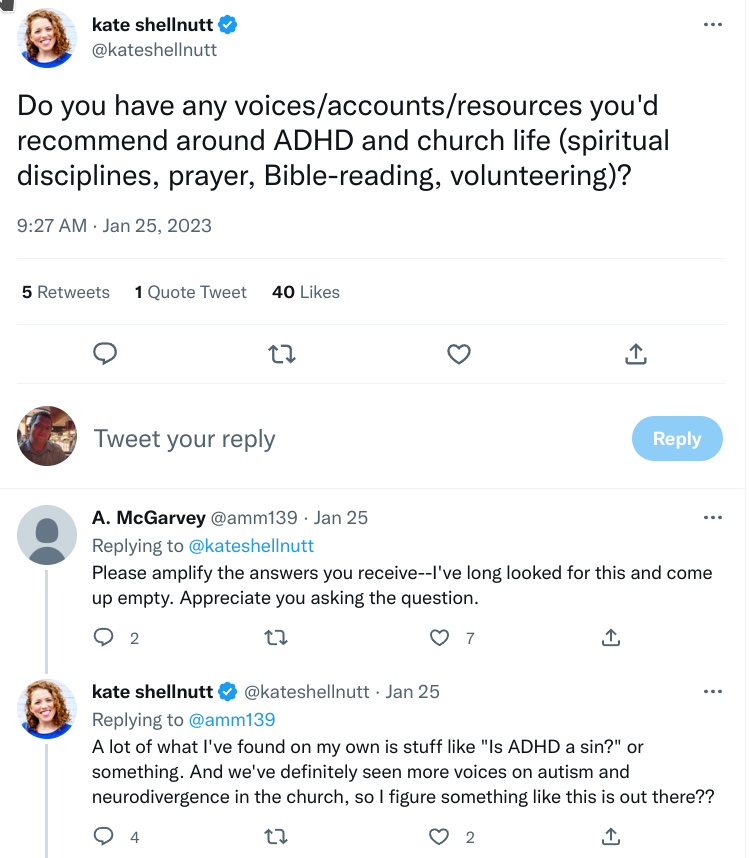Her brow furrowed to display an emotion I could not instantly recognize. It was disconcerting to momentarily be unaware of what my eldest daughter was thinking.
“Well daddy, we played salon and then the floor is lava, but [their dog] is so crazy we couldn’t keep playing!” The memory forced a smile onto her face, and I re-recognized my Ellis—her soft voice, her small laugh that punctuated the end of every sentence that made her smile, the sharp angular way she moved her hips and arms, as if she was taught to move her body by an AI that had used Bring It On and Mean Girls exclusively as training data.
“I love it, baby. Then what did you do?” The same furrowed brow, the same internal confusion, and again a response culminating in a short laugh. The cycle repeated again and again until I had heard the entirety of her day—first school, then time on the playground with her school bestie (They aren’t in the same class this year, don’t you know. How could the principal do that to us?), then home to play with our family’s new puppy (a gorgeous Cocker Spaniel that is up to no good at every waking moment), then a short bicycle ride, then time at the neighbor’s playing, before finally ending the day with a proper meal of The Lord’s Chicken. She finished her meal and, wearing the same slightly confused look, gave me a huggy. “I love you, daddy,”—a normally perfunctory statement that had a bit more added to it—before she fled the table to play with such haste I feared a sonic boom would destroy some furniture. I checked my watch: 8 minutes. I had been having a conversation with my daughter for only 8 minutes. A weight gripped my heart, and I felt the emotion building out from my chest. Moments later, the melancholy overwhelmed me, and tears began to flood my eyes. At age 7 (“and a half, daddy!”), my daughter had finally experienced what it was like to have an almost 10-minute, uninterrupted conversation with her father.
“Have you ever considered getting tested for ADHD?” Natalie’s question hung in the air for a moment before I dropped my gaze from hers and ungoverned my brain to race on the idea. I didn’t have ADHD, did I? I mean, I could see myself being “slightly on the spectrum” and having Autism. There was also a time in my life when I struggled immensely with depression. But ADHD? Surely not. That’s what kids that can’t sit still have. I was a grown man with a wife and children and a mortgage and significant obligations at work, in my church, in my community, and in my extended family. Surely Natalie, who is a brilliant professional therapist with years of experience and holds both a specific gifting for her work and a Master’s in Counseling, was wrong on this and I, a man with no training or knowledge of therapy, was right.
“I mean, I haven’t before. I’ve never really thought of myself as struggling against myself in a physical or mental sense, only in a spiritual, Romans 71 type of struggle. Really I’m just weak, lazy, and undisciplined.”
“But what if you aren’t those things?”
The comment hung in my mind for weeks before I finally sucked it up and scheduled the test. A morning off, a lot of questions I was frustrated I couldn’t answer as quickly as I wanted to2 , and even more questions that I impulsively answered too quickly and incorrectly. Then, a few days later, the call came. “I am diagnosing you with a strong case of ADHD and high giftedness” the first inquisitive and now instructive voice breezed through the phone, as if he were ordering a meal for carryout and not kicking over a significant pillar of my worldview I had spent 39 years honing. And just like that, I was officially neurodivergent3.
I have started and stopped this piece of writing many times over the previous four months. How does one even begin to properly wrestle with 39 years enslaved by a mental condition I wasn’t aware of? How do I explain the loss? How do I capture the pride I had in who this illness molded me into while grieving what it took from me? How do I even name this thing? Neurodivergent? Mentally ill? Sin made manifest in the flesh due to our fallen Creation that will one day be redeemed? How do I ever explain to my children that I wasn’t on my phone because I didn’t care about them, but because my brain was (and still is—the medication simply makes it manageable) a perpetual motion machine that at any given moment holds between one and five ongoing internal dialogues about radically different topics? How do I explain all the ways I trained myself to struggle through this condition? Do I keep those habits? Reject them? How do I ever express the love I have for my wife, the one physical thing in this world that could focus my mind and kept me from falling into the deepest abyss in my 20s when I struggled to hold a job? Midway on the journey of my life, I have found myself exiting a dark forest and leaving a crooked path I did not know I was on. This blog starts as an attempt to wrestle with these questions, though other topics will appear here when they grab my attention, which happens quite frequently.
The straw that has broken the camel’s back and forced me to publish this dreadful Hello, world!4 article is a series of tweets:

These tweets have awakened a burning frustration within me that has compelled me to begin writing. Not anger at Mrs. Shelnutt, but with their profound mid-wittery that we must be forced to endure from our Evangelical culture. “Men do not need therapy” / “ADHD is a lack of discipline to control sin” / “Men should not see female therapists” / “Mental illness is a lack of willpower and this is something broken within me spiritually” / “Don’t say mentally ill out loud around others.” Many of these thoughts may come from a well-meaning place, but it is vital that Christians begin to understand the difference between that which is from God, and that which is from our current culture. This blog will seek, in regards to these topics, to fulfill the command of Jude, bond-servant of Jesus Christ and brother of James:
“Beloved, while I was making every effort to write to you about our common salvation, I felt the necessity to write to you appealing that you contend earnestly for the faith which was once for all handed down to the saints.” Jude 1:2-4
As is the case with obesity (a word with which I have 40 years of intimate knowledge), the very phrase “mentally ill” carries an immense cultural shame in both modern secular Western culture and our little cubbyhole of American Christianity. We Christians are commanded by God as caretakes of creation and culture to confront such superstition and outdated knowledge and cast it out into the wilderness of Zin5. For the precious few people outside of my family that might read these words, I will attempt as much as possible to be completely honest about my condition in the hope that even a few people will be able to better manage their, or their loved one’s, lives that have be affected by this.
-
Romans 7:15, 17–19 “For I do not understand what I am doing; for I am not practicing what I want to do, but I do the very thing I hate. … But now, no longer am I the one doing it, but sin that dwells in me. For I know that good does not dwell in me, that is, in my flesh; for the willing is present in me, but the doing of the good is not. For the good that I want, I do not do, but I practice the very evil that I do not want. But if I do the very thing I do not want, I am no longer the one doing it, but sin that dwells in me.” ↩
-
I spent 30 seconds agonizing over the length of time it takes light to travel from the Sun to the Earth. 8 minutes or 11? It was mortifying to be unable to tell my inquisitor the answer instantly. Had I really learned nothing in school? Finally I had to break down and do the back-of-the-envelope math in my head. “186K miles per second, 1.8 million per 10 seconds so approximately 10.8 million per minute. At 93 million miles that ballparks to a little over 8 minutes.” Who has to do that math and can’t recall it? Humiliating. ↩
-
It was during this process that I learned neurodivergent has a technical meaning divorced from the online “Twitter-brained” meaning I associated with it. What to call what I have is a topic that will take a lot of writing to work through, so for now, I’ll trust my therapist and refer to myself as neurodivergent. ↩
-
“Hello, world!” is the first program almost any programmer will ever write in their lives. First appearing in the monumental The C Programming Language6 , “Hello, world!” is so ingrained into programming culture that it now refers to the first program any programmer writes in a new language or framework. In the original program the words, “Hello, world!” were printed on the screen. ↩
-
I’m a 40-year-old man, and I like it. If you read this blog, you’re going to be stuck with lots of obscure references, not the least of which will be off the wall Old Testament references. The Wilderness of Zin comes from the book of Numbers and references the land adjacent to Mount Sinai where the people of Israel rebelled and wandered for 40 years. Or you could just read the Old Testament and you wouldn’t have to read my footnotes. ↩
-
B. Kernighan and D. Ritchie, The C Programming Language Prentice Hall 1978 ↩
